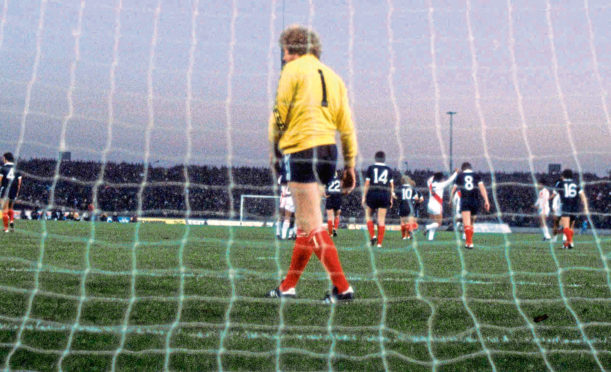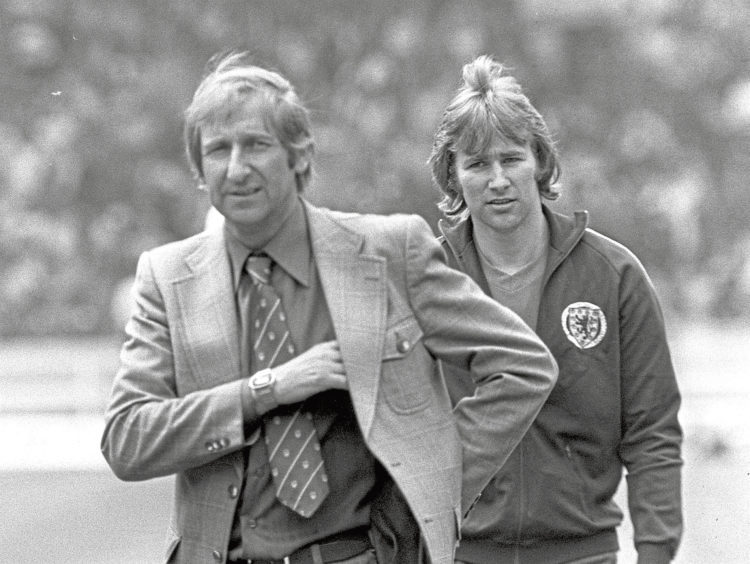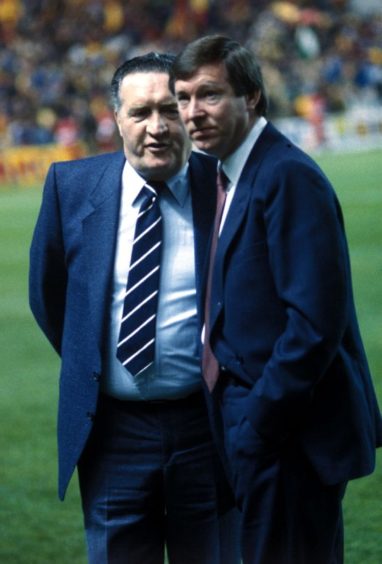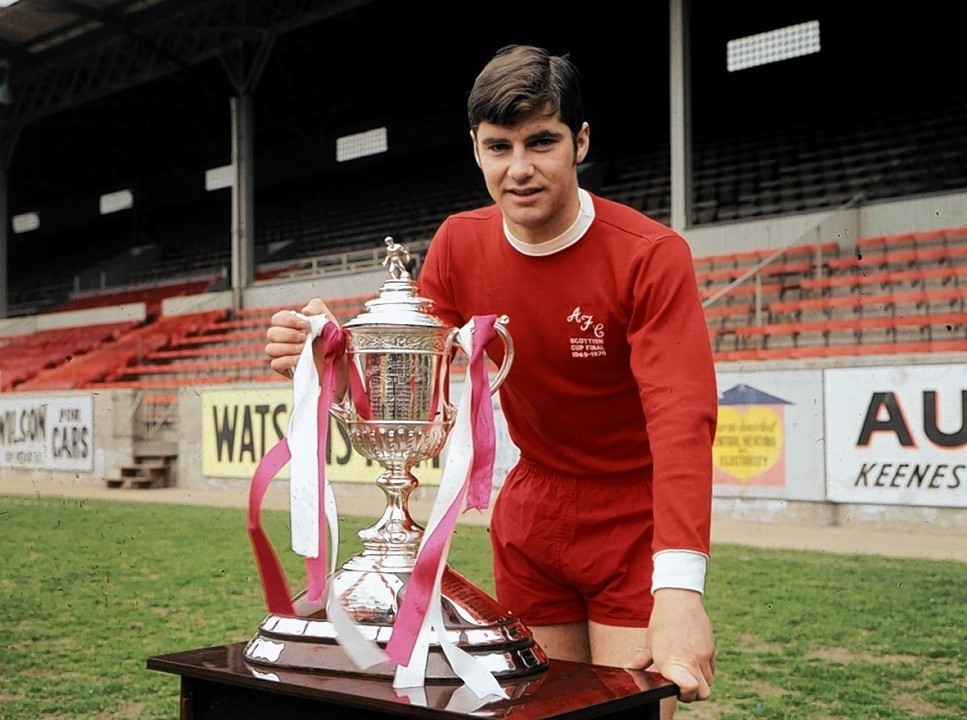Alan Rough has never forgotten the time that Rod Stewart turned up at the Scotland team hotel in 1986 when Alex Ferguson’s squad were preparing for a couple of warm-up matches in Los Angeles.
After gaining permission from the Scotland manager to treat team members to a special night out, Stewart laid on a massive, chauffeur-driven limousine for half-a-dozen players – including Rough, Graeme Souness, Steve Archibald and Mo Johnston – and, for the next few hours, they enjoyed Hollywood luxury, dining on oysters and champagne at a gourmet restaurant on Sunset Boulevard where there was even a string quartet in the rest rooms.
Predictably, perhaps, the drink kept flowing, and Rough was delighted to learn there was party in full swing on the 15th floor once he had returned to the team hotel.
Unfortunately, for him, it was a wind-up and after he had bounded up the stairs and hammered on the door enthusiastically, it was opened by none other than Ferguson, who asked him what the hell he thought he was doing. Which swiftly brought the festivities to an end.
As one of life’s whole-hearted enthusiasts, Rough’s career was packed with similar incidents, whether appearing on Top of the Pops singing Ally’s Tartan Army in 1978 or turning up on the same programme propping up a few of his colleagues while John Gordon Sinclair and BA Robertson performed We Have A Dream, prior to the World Cup in Spain four years later.
In which light, and given his boyish exuberance and ardent zest for life, it hardly seems credible that Rough, who won 53 international caps, featured in three World Cup squads and enjoyed success at Partick Thistle, Hibs and Celtic, turns 70 this week. For him, age is just a number, but still….where has the time gone since I worked with him on his autobiography in 2006?
Occasionally, trying to extract information from sportspeople is as difficult as bringing peace to the Middle East. Not so with Rough, who had views about everything, a plethora of stories of his run-ins with the likes of recently-departed Lisbon Lion Bertie Auld and memories of such contrasting events as Aberdeen’s triumph in the European Cup Winners’ Cup final in 1983 and Jock Stein’s tragic death at the climax of a crucial match in Wales two years later.
As he told me: “At the end of the game, a 1-1 draw in Cardiff, which earned us a play-off, we were all jumping up and down, with sheer relief as much as elation, in the dressing room when Alex Ferguson came in. He looked ghastly and said: ‘Look lads, there is no easy way to tell you this, but Jock has had a heart attack and we are trying to find out how he is’.
“Well, we all just shut up and it was as if time stood still. We were all devastated and none of us knew what to do. Nobody said a word, even while officials were milling back and forwards, and we shed tears.
“Then eventually, following what seemed like an eternity, the news filtered through that he had died. It was awful. And believe me when I say it was the most sombre, depressed group of young men you could ever have encountered as we made the journey to Cardiff Airport, shrouded in grief.”
Martin Buchan wasn’t having it
Rough could mix such melancholic reminiscences with tales of the absurd, such as when he and the rest of the Scotland team were booked into a hotel in Argentina in 1978 which made the Bates Motel resemble the Waldorf Plaza.
By that stage, Scotland’s most ill-fated World Cup campaign in history was nearly finished and most of the players knew it would be a millstone round their necks forever. So they trudged into their temporary dosshouse.
But not for long.
As Rough recalled: “I was starting to unpack my bags for an evening with the cockroaches when (the former Aberdeen and Manchester United captain) Martin Buchan marched in and asked what I was doing? He said there was no way a Scottish international team was going to stay in such a dump and told us to return to the bus.
“Then he personally instructed the driver to collect all our luggage and take us to the Hilton. Once there, he called the SFA officials downstairs and forced them to get the whole business sorted out as quickly as possible.
“Martin was masterful, stood up for us and it was a victory of sorts. But it only emphasised the governing body’s problems and exposed their limitations.”
Rough has become a successful radio and TV pundit with a wealth of opinions and anecdotes. But most Tartan Army supporters won’t be aware that his career in football was nearly ended before it had even begun.
At the age of 10, he woke up in an emergency ward at Glasgow’s Oakbank Hospital after suffering an accident while playing with his mates which had caused serious damage to his arm.
The first doctor to inspect him said: “I’m sorry, but it is just too far gone. I am afraid that we are going to have to amputate it.”
But there was a happy ending
Eventually though, as the discussions continued over the best treatment and more senior medical staff became involved, he gained a merciful reprieve.
One of the surgeons told him: “I am sure that we can fix this and sort it out, as long as you realise you will have to show patience if it is to heal properly.”
And he responded: “I was overwhelmed – it was as if a dozen Christmases had arrived at once. I was going to be okay. I could play football again.”
Which, of course, he did with great distinction for both club and country. Happy 70th birthday, Alan Roderick Rough.



